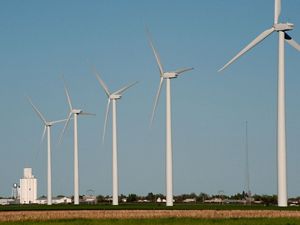Stronger tailpipe standards would benefit climate and consumers
Proposed rules expected to significantly accelerate the expansion of nation’s electric vehicle fleet.
Media Contacts
-
Randy Edwards
The Nature Conservancy
Phone: 703-407-9316
Email: redwards@tnc.org
The Nature Conservancy is encouraged by newly proposed rules that would strengthen tailpipe emissions standards for cars, SUVs and light trucks and are expected to significantly accelerate the expansion of the nation’s electric vehicle fleet.
The rules, proposed April 12 by the U.S. EPA, call for a 56% emissions reduction, on average, for model years 2027 to 2032. Combined with new emissions standards proposed for heavy-duty vehicles, the new rules would remove nearly 10 billion tons of carbon emissions, a strong measure against climate pollution and other unhealthy air pollutants like smog and soot. The new rules don’t mandate electric vehicles, but the government expects automakers to increase the proportion of new EVs sold in the U.S to 67% by 2032 to meet the new standards.
“These new rules would bolster the significant steps Congress has taken recently to encourage the transition to a clean transportation economy,” said Jason Albritton, North America Climate Mitigation Program Director for The Nature Conservancy. “Stronger tailpipe standards will provide the boost needed to ensure that electric vehicle fleet is available for consumers who want to benefit from incentives for EV purchases and investments in EV charging infrastructure.
The new standards are subject to public comment, and TNC is prepared to actively support their adoption, Albritton said.
“Cars and trucks are one of the greatest sources of climate and air pollution in the country,” Albritton said. “Reducing emissions is essential for Americans’ health and to meet the challenge of the climate crisis. To avert the worst impacts of climate change, we must reach net zero emissions in the United States and around the world by 2050. We cannot do that if we do not significantly reduce emissions from cars and trucks.”
The Nature Conservancy is a global conservation organization dedicated to conserving the lands and waters on which all life depends. Guided by science, we create innovative, on-the-ground solutions to our world’s toughest challenges so that nature and people can thrive together. We are tackling climate change, conserving lands, waters and oceans at an unprecedented scale, providing food and water sustainably and helping make cities more sustainable. The Nature Conservancy is working to make a lasting difference around the world in 81 countries and territories (40 by direct conservation impact and 41 through partners) through a collaborative approach that engages local communities, governments, the private sector, and other partners. To learn more, visit nature.org or follow @nature_press on X.


